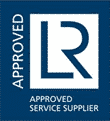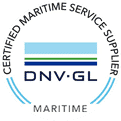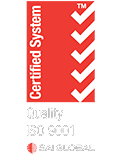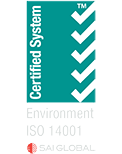Accredited Diving Services Australia-wide
New Zealand Ministry of Primary Industries (MPI) implement Biofouling Management on vessels that visit any New Zealand Ports. This means all vessels arriving in New Zealand must provide evidence of biofouling management prior to arrival and must ensure their vessels hull condition meets the MPI standards.
The Craft Risk Management Standard (CRMS) for Biofouling outlines the requirements for international vessels.
Vessels are sorted into 2 different categories based on their intended stay in New Zealand:
Most short-stay vessels are commercial vessels, including:
Long-stay vessels often include:
Commercial Diving Services conduct frequent underwater inspections on vessels planning to visit New Zealand Ports. Our inspections are conducted in accordance with the NZ MPI and Craft Risk Management Standards (CRMS) which ensures our divers inspect and document the reports in a manner that satisfies the reporting requirements for MPI to access the vessel once the vessel submits their application to visit any New Zealand Port.
The underwater inspection is very detailed and must cover the entire hull and all niche areas of the vessel. Commercial divers must document and provide actual evidence along with estimated percentage (%) of coverage for marine growth and marine descriptions that may be attached to the hull.
Documentation reports must be developed which include photo and live video recording of the underwater inspection, in association with a detailed written report detailing all the areas of the hull and niche areas inspected with comments and details on the hull’s bio fouling condition.
Due to our longstanding experience in approved ship in-water class surveys and having completed thousands of successful hull inspections our highly experienced commercial divers and detailed reporting systems enable us to provide these comprehensive New Zealand MPI bio-fouling inspections for all our clients planning to visit New Zealand Ports.
It’s important to note if you are a shipping operator that diving contractors are not able to advise or provide guidance on whether or not a vessel is suitable for entering New Zealand Ports. This assessment is for MPI only to conduct based on the reports provided by the dive contractor. In the end the decision is entirely that of MPI and not the diving contractor.
It’s important when choosing a commercial diving company to undertake these types of inspections that they understand the CRMS reporting standards and requirements to ensure an application made by the vessel operators or owners is not rejected by the New Zealand MPI due to a lack of compliance by the diving contractor.
This may result in the inspection having to be done again at more cost or may also result in the vessel schedule being delayed. Commercial divers must be experienced in the areas of the vessels hull and have knowledge of where to look for certain types of marine species and high risk locations that MPI will be concerned about.
Do not hesitate to contact our office and speak to a marine underwater expert at any stage if you have more questions in regards to these inspections or your vessel. We are always available for our clients and experienced in meeting your requirements.
Have questions about our commercial diving services? Whether you need underwater inspections, maintenance, or emergency response, our expert team is ready to assist. Contact us today to discuss your project!”
Let me know if you’d like a different tone or additional details!
We service all of Australia from multiple service locations. Our Head Office is based in Sydney.














